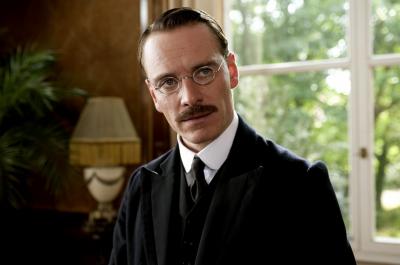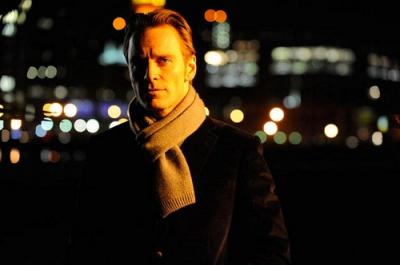By: debbie lynn elias
Michael Fassbender is a name synonymous with excellence. He is an actor who knows his craft. Never resting on his laurels, he continues to strive for perfection with every role and self-mandates a thorough understanding and embodiment of each character. He is also an actor that takes risks both with the roles he chooses and in each performance. And he’s an actor that keeps busy. Within the past two years, we have seen Fassbender skyrocket to the A-list with his work in Fish Tank, Inglorious Basterds, Centurion and Jonah Hex. But 2011 is without a doubt Fassbender’s banner year. He has dazzled us in the action flick X-Men: First Class, stolen our hearts as the mysterious Rochester in Jane Eyre, and now, at year’s end, tackles three of his most talked about and impressive performances – psychiatrist Dr. Carl Jung in A DANGEROUS METHOD, the sex addicted Brandon in Steve McQueen’s SHAME, and Paul in the yet to be released Black Ops thriller from Steven Soderbergh, Haywire.
As Fassbender did with 2009’s Fish Tank, in both A DANGEROUS METHOD and SHAME, he walks a fine line of social and moral acceptability with both characters crossing lines, pushing the envelope and addressing highly charged issues of sexual dysfunction. Sex scenes are graphic in both and in SHAME, Fassbender bares it all with full frontal nudity.
During a recent joint interview session for both films, I had a chance to ask Fassbender a few questions about these two outstanding Oscar-worthy performances.

Michael, having just said everything about the research you‘ve done with Jung and portraying him [in A DANGEROUS METHOD], what do you think, in character, he would have to say in terms of diagnosis, treatment and commentary on your character of Brandon in SHAME?
Well, I think he’d probably tell him it’s alright. First stage is like, it’s okay. To talk about it. I think what’s interesting about these guys is that they were truly very fascinated in human behavior and why we sort of behave in certain ways. I think they realized that again, there’s a social sort of form that we’re expected to live under and we’re expected to behave a certain way with one another and socially. But in actual reality and in practice, what way do we really behave? It’s kind of crazy being a human being and trying to all get along and all the complications that we have within ourselves and the relationship that we have with our self number one, then let alone the relationships that we have with others. So, I think he would probably tell him that everything’s gonna be okay and go see my friend Siggy Freud. [laughing]
Michael, going all the way back with Fish Tank and now up to A DANGEROUS METHOD, SHAME and even Jane Eyre, your characters walk a fine line of issues of social acceptance, psychological and moral acceptance. What is it about those roles that seem to repeatedly attract you?
I think it’s conflict, first and foremost. I think what we do is heightened reality. It’s like people go, “It’s not real.” Well, real can be really boring. It’s like we’re trying to ask questions and seek out drama and the best way to have that is to have conflict. Conflict between characters or conflict within the character itself. I think it just makes it for more interesting viewing and it’s more provocative and makes us question things a bit more. Something like Fish Tank, is like, “Well, I kinda like that guy” [and then] “Oh shit. He did that? Oh, I don’t know how I feel about him now.” And then you take a look and you go, “Well, he’s actually the one person in the film that gives Mia encouragement and tells her that she is special and she should have her dream and not to think that she’s a piece of shit and she’s never going to get out of this world.” And then he oversteps the line and abuses his authority and his position because she looks up to him. So, that’s life. I’m not like “here’s the villain – here’s the good guy” which is kind of just boring for me. It’s like, “what happens if you grow the two together.”

How do you go about internalizing and preparing for a part like Brandon [in SHAME]? There‘s a lot of self-loathing, a lot of self ass-kicking going on mentally. How do you wrap your head around that to bring that gravitas to the screen?
Just spend a lot of time with them. Like we were saying before, part of my preparation, a very big part of it, is just I re-read the script. I might read it 300, 350 times. So I’m spending a lot of time with him and I’m getting to know him. Then through the day I’m like, “What would Brandon do in this scenario?” Just little pieces that you’re gathering. You’re gathering little pieces of information every day and you’re putting them together and you’re sitting down with it and thinking, ”Is this logical?”, and if it is logical, then give it a try. Then Steve [McQueen] is there to sort of steer me in the right direction with that. But it’s just about sort of trying to understand it and relate to him as opposed, again, to this judgment thing. That would be a mistake.
#











